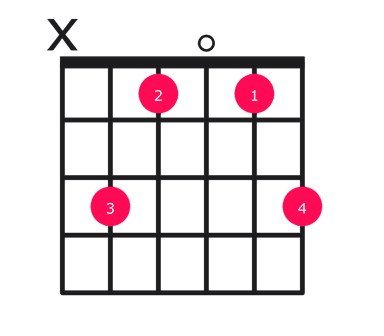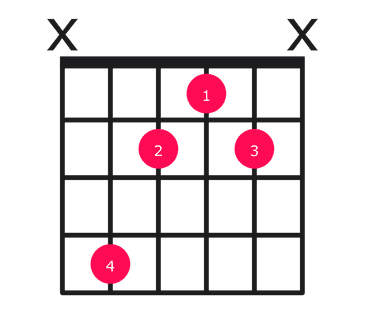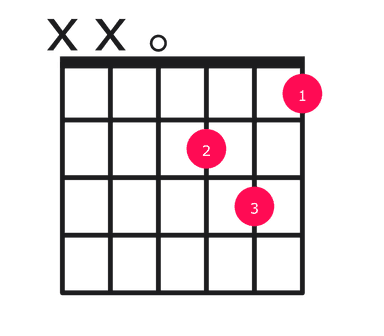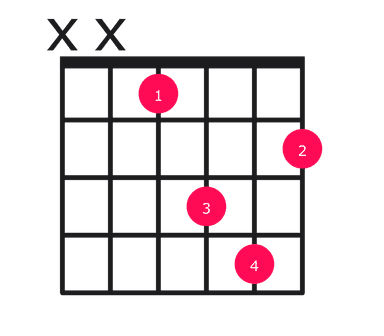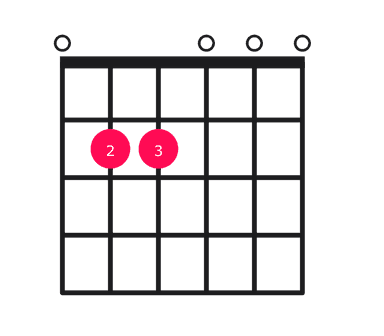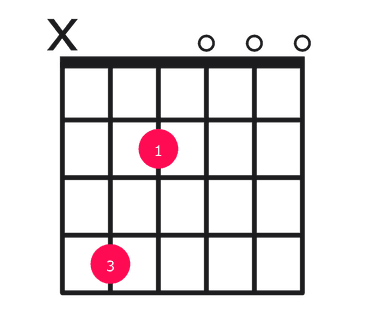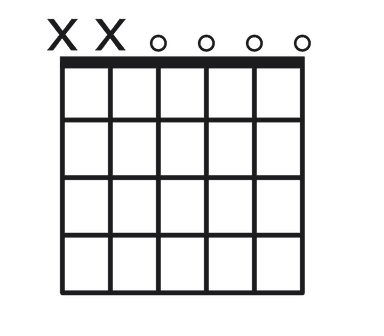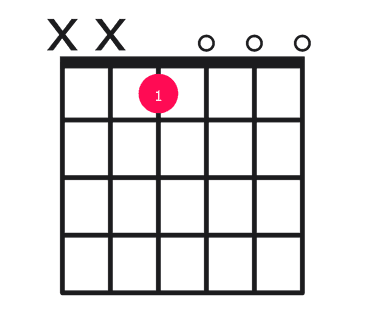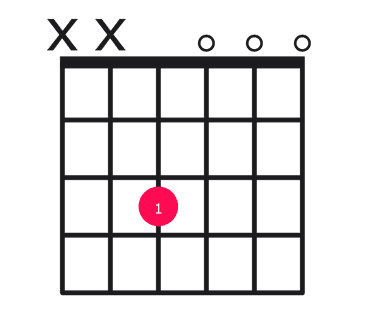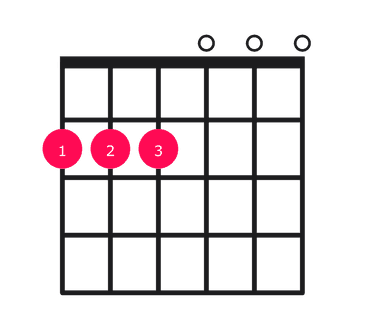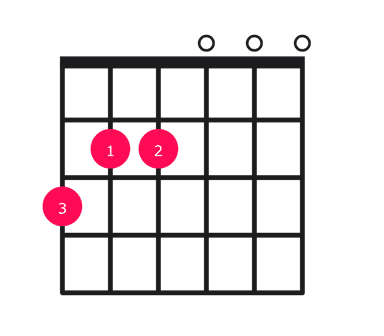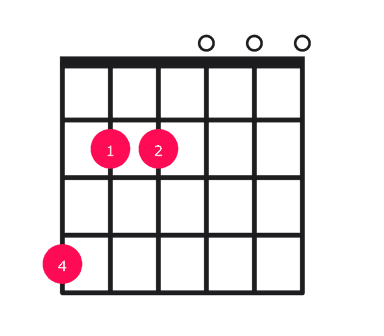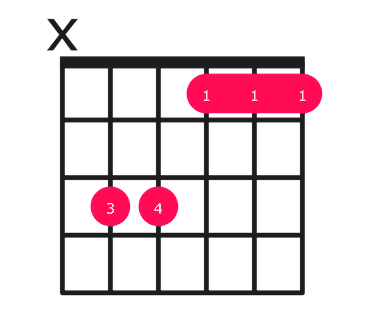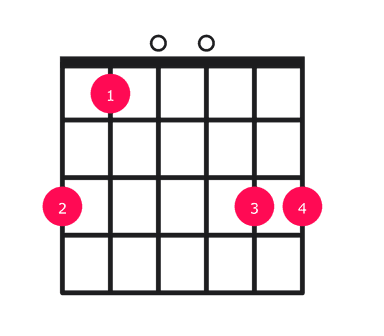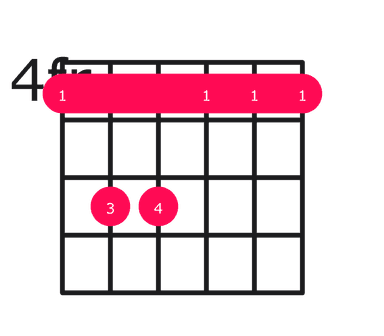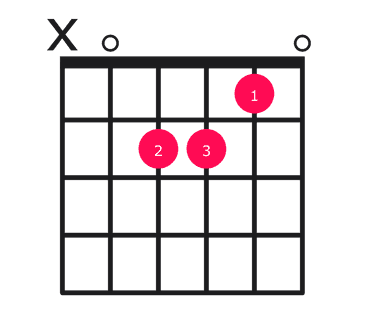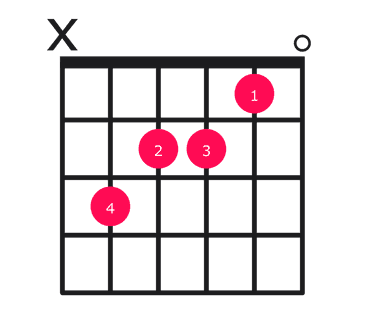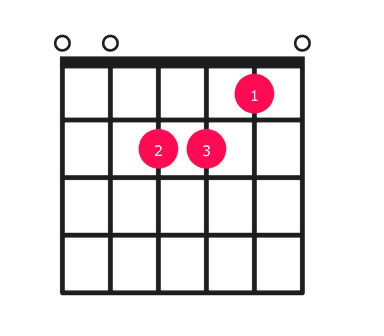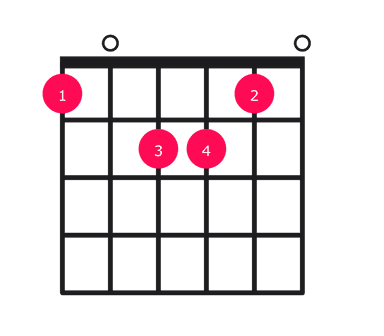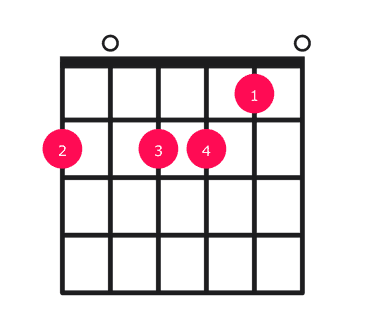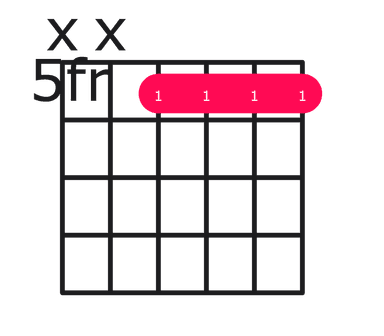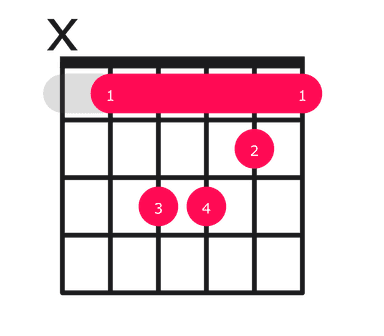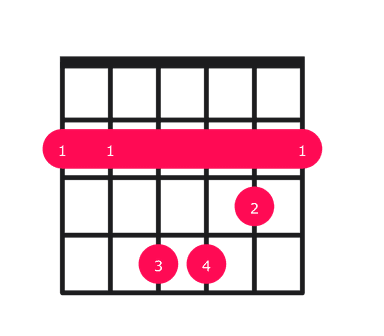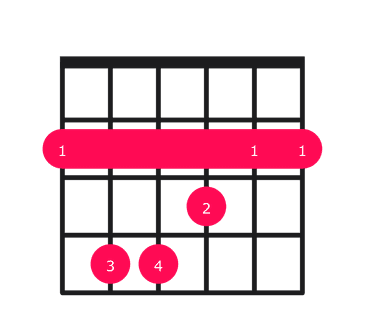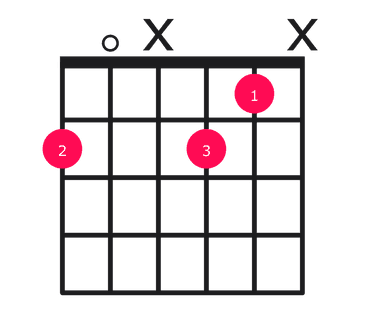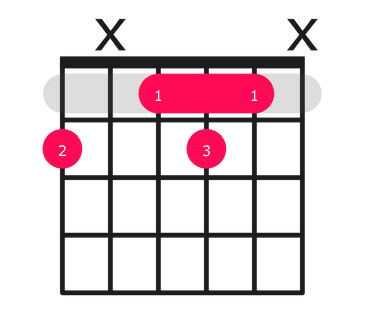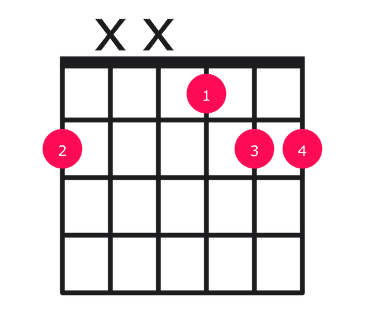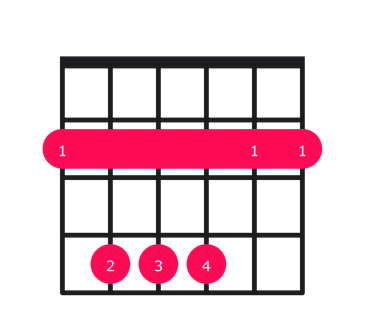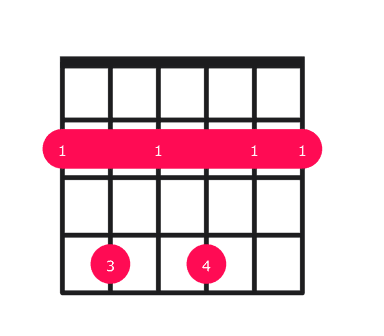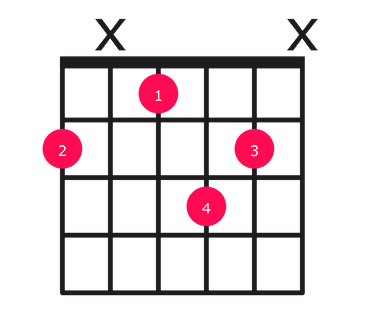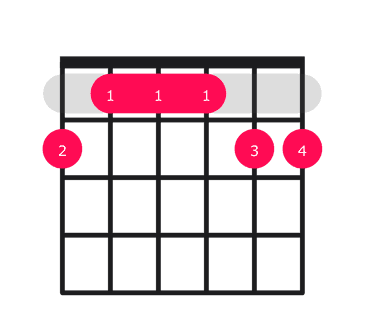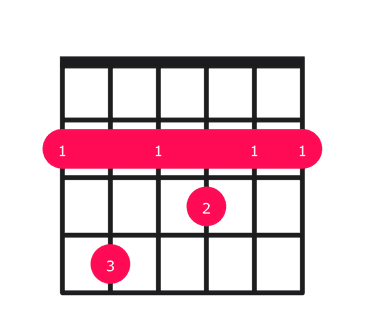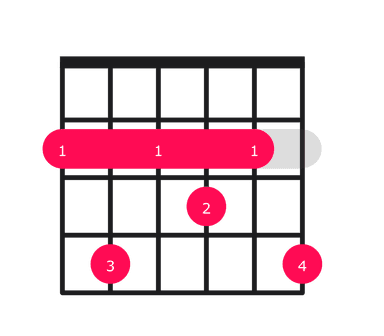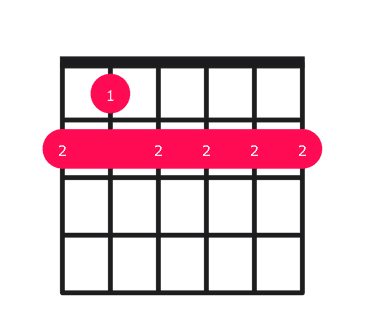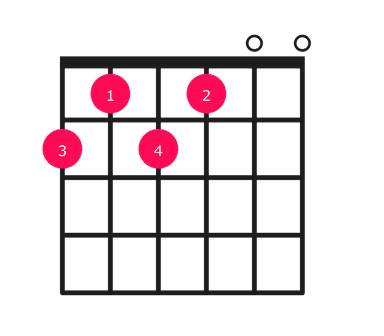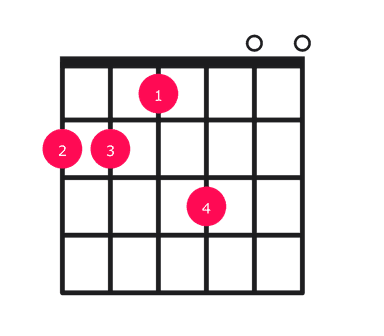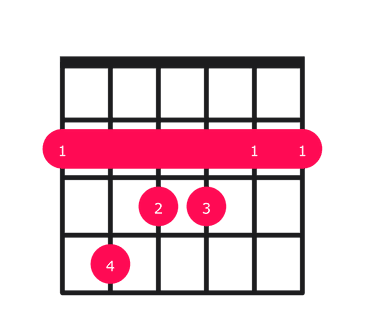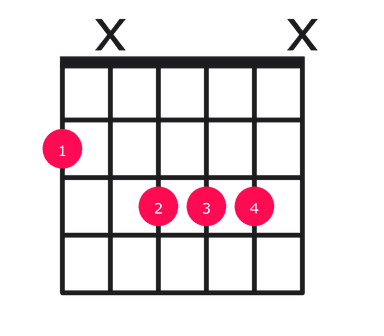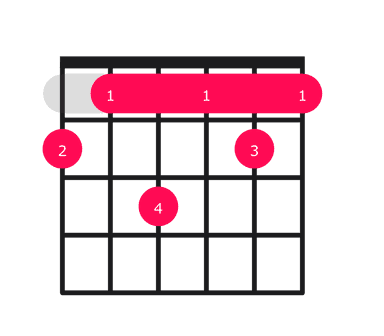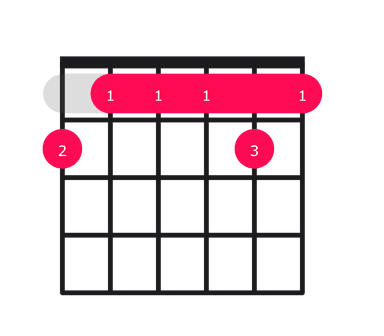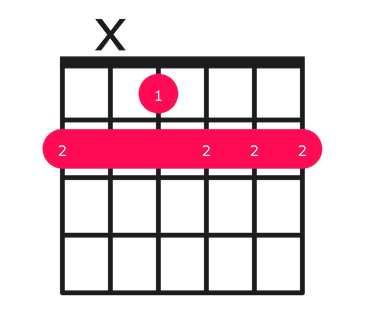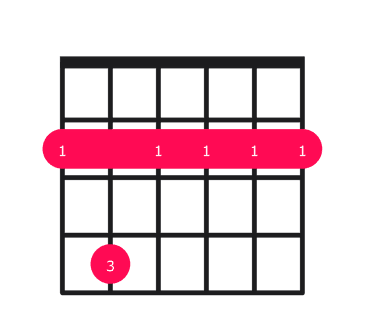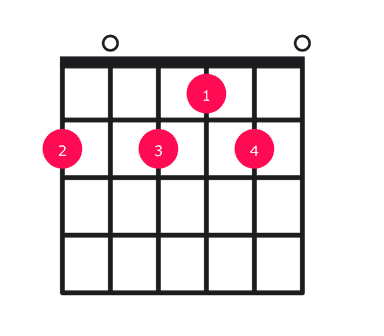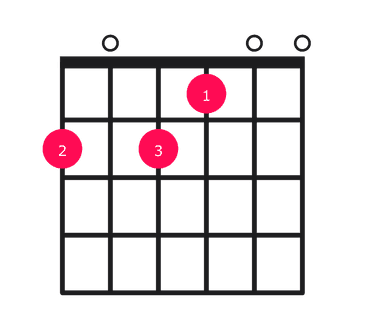How to play the F# minor chord on guitar
Unleash the somber tones of "Stairway to Heaven" and "Creep" with this essential chord.
The F#m chord
The F#m chord, pronounced "F sharp minor," is a haunting and introspective chord that adds depth to many musical genres. Commonly used in rock, folk, and indie music, the F#m chord creates a melancholic atmosphere. Notable songs featuring this chord include "Wonderwall" by Oasis and "Blackbird" by The Beatles. Mastering the F#m chord is essential for guitarists looking to expand their emotional range.
There are many ways to play a chord. Here's a diagram for the most common F# minor chord. We've also included other versions below.
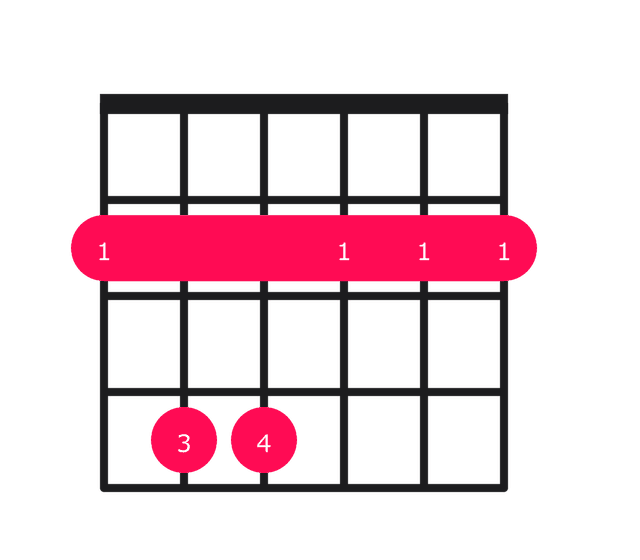
Unlock your playing potential in online guitar lessons with experts on Til. Start today and achieve your guitar goals quickly. Find a top-rated teacher.
Finger placement for F#m chord
The most common way to play the F# minor chord on guitar is as a barre chord on the 2nd fret.
Follow these finger positions to play a F# minor chord on your guitar:
- Use your index finger to barre all six strings at the 2nd fret.
- Place your middle finger on the 3rd fret of the 3rd (G) string.
- Place your ring finger on the 4th fret of the 5th (A) string.
- Place your pinky finger on the 4th fret of the 4th (D) string.
To strum this chord, use your pick or thumb to play down across all six strings. Make sure to apply firm pressure with your index finger to properly barre the strings.
How to play an easy F#m chord on guitar
If you're a beginner looking to play a simpler version of the F# minor chord, try playing a basic triad shape on the 9th fret. Place your index finger on the 4th string, middle finger on the 3rd string, and ring finger on the 2nd string, all at the 9th fret. Strum only these three strings.
How to play a F#m bar chord
The F# minor barre chord is a great alternative to the standard F#m chord shape, as it allows for easier transitions and a fuller sound.
Here's how to play a F# minor barre chord:
- Place your index finger across all six strings at the 2nd fret, creating a barre.
- Place your middle finger on the 3rd fret of the 5th (A) string.
- Place your ring finger on the 4th fret of the 4th (D) string.
- Place your pinky finger on the 4th fret of the 3rd (G) string.
- Strum from the 6th (low E) string down to the 1st (high E) string.
Common F#m chord progressions
The F# minor chord is often used in progressions that convey a sense of melancholy, introspection, and emotional depth. Here are some common F# minor chord progressions:
- i - iv - i (F#m - Bm - F#m)
- i - iv - v - i (F#m - Bm - C#m - F#m)
- i - VI - III - VII (F#m - D - A - E) Used in "Stairway to Heaven" by Led Zeppelin
- i - VII - VI - VII (F#m - E - D - E)
- i - v - VI - III (F#m - C#m - D - A)
Drills to master the F#m chord
To master the F# minor guitar chord, try playing the chord progression F#m-A-C#m-F#m repeatedly. Focus on smooth transitions between each chord, ensuring each note rings out clearly. Practice this drill for a few minutes daily, gradually increasing your speed as you become more comfortable.
Another effective drill is to play the F# minor chord as an arpeggio, plucking each note individually in ascending and descending order. This exercise helps develop finger dexterity and muscle memory, making it easier to play the chord in various musical contexts.
Unlock your playing potential in online guitar lessons with experts on Til. Start today and achieve your guitar goals quickly. Find a top-rated teacher.
Jason A.
"This class was a perfect fit for me. It was refreshing to find an intermediate class that focused on harmony and voice leading. It was nice to have the opportunity to chat live and ask questions to clarify things in real time."
Songs that feature the F#m chord
Here are 10 popular songs you can play with the F# minor chord.
- Lose Yourself by Eminem (F#m, D#m, E, C#m)
- Pyramid Song by Radiohead (F#m, A, E)
- Joga by Björk (F#m, D#m, A#m, C#)
- Love Is Blindness by U2 (F#m, D, A, E)
- Teardrop by Massive Attack (F#m, A, D, E)
- Exit Music (For a Film) by Radiohead (F#m, A, E)
- Somebody That I Used to Know by Gotye (F#m, Dm, Dm/F, F)
- Slow Dancing in a Burning Room by John Mayer (F#m, D, A)
- Ava Adore by The Smashing Pumpkins (F#m, E, D, A)
- Decode by Paramore (F#m, D#m, E, C#m)
How a guitar teacher can help
If you feel stuck in your playing, it might help to take personalized guitar lessons with an expert guitarist. Taking lessons with a pro gives you access to the skills, feedback, and motivation to reach your goals.
You can find expert guitar teachers to support you in the journey. Thousands of people have turned to online guitar lessons on Til, instead of traditional in-person lessons, because Til gives you access to the best teachers in the world from the comfort of home. And with flexible scheduling, secure payments, lesson recordings, and a private chat with your teacher–there’s never been a better way to learn guitar.
